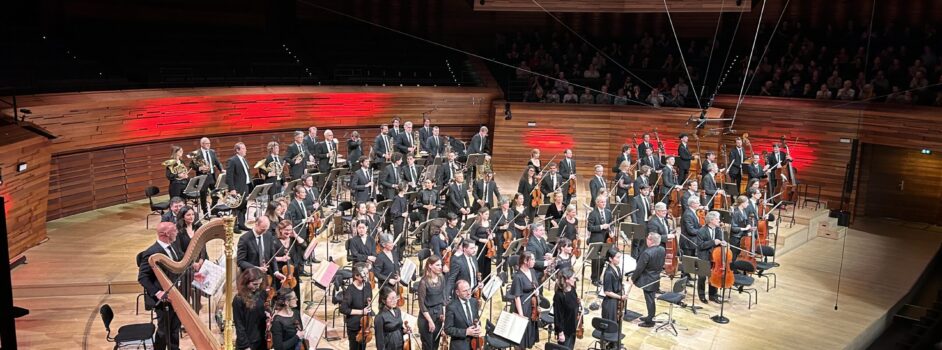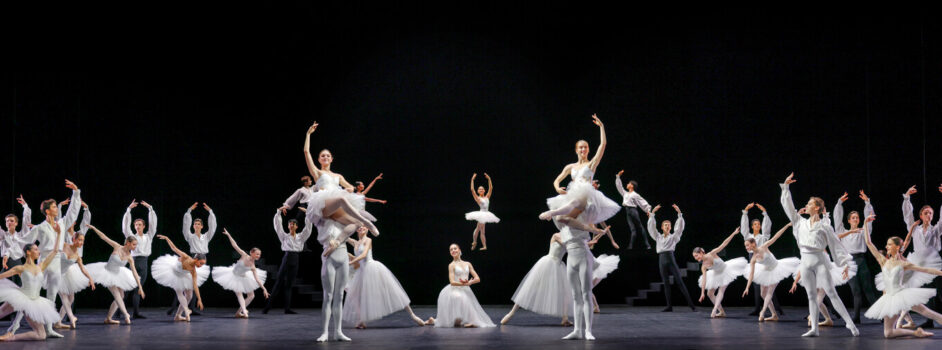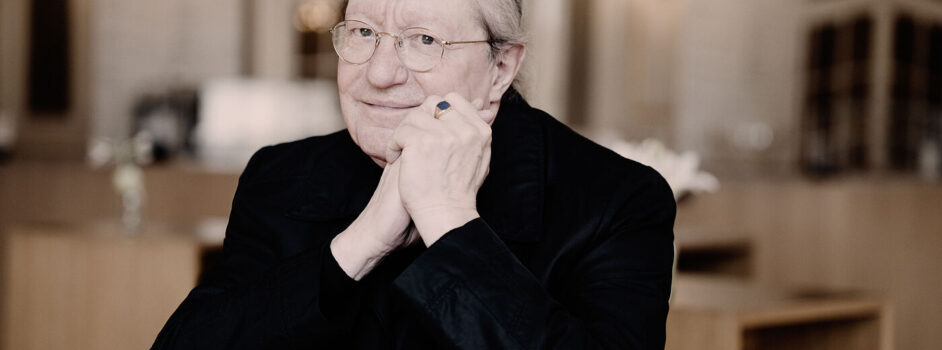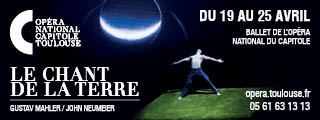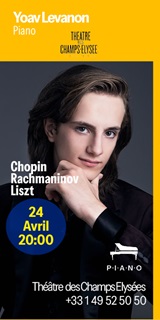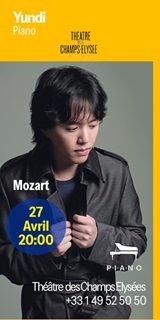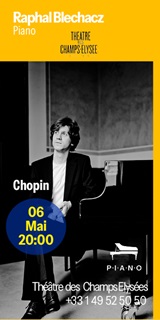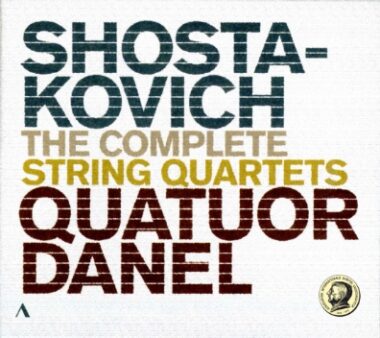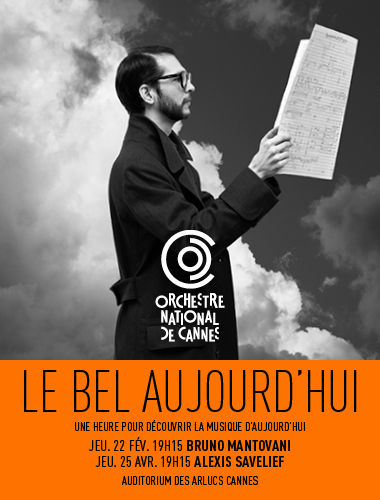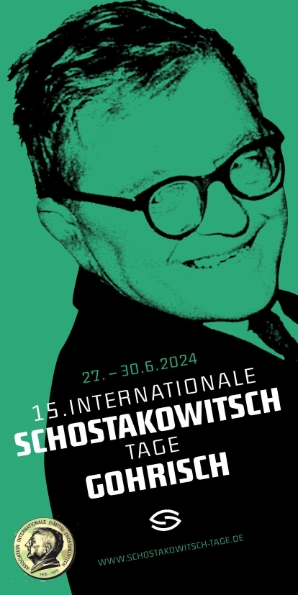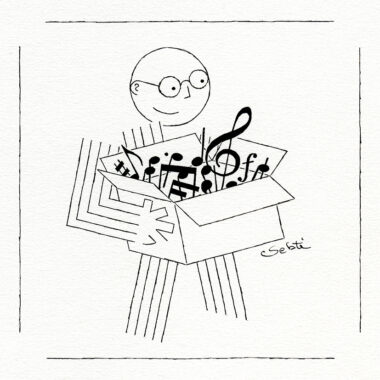Plus de détails
Verbier. Salle des Combins. 25-VII-2013. Giuseppe Verdi (1813-1901) : Otello, acte I. Richard Wagner (1813-1883) : Die Walküre, acte III. Avec Aleksandrs Antonenko (Otello) ; Anna Netrebko (Desdemona) ; Alexey Markov (Iago) ; Francesco Demuro (Cassio) ; Anthony Gregory (Roderigo) ; Maurizio Leoni (Montano). Bryn Terfel (Wotan) ; Eva-Maria Westbroek (Sieglinde) ; Iréne Theorin (Brünnhilde) ; Zhanna Dombrovkaia (Ortlinde) ; Natalia Evstafieva (Waltraute) ; Elena Vitman (Schwertleite) ; Tatiana Kravtsova (Helmwige) ; Ekaterina Sergeeva (Siegrune) ; Anna Kiknadze (Grimgerde) ; Yulia Matochkina (Rossweisse). Chœur The Collegiate Chorale (Chef de chœur : James Bagwell). Verbier Festival Orchestra. Direction musicale : Valery Gergiev
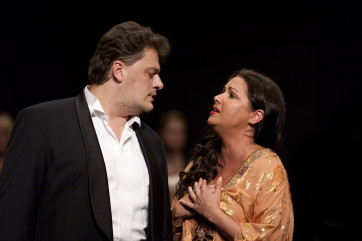 There was a spectacular cast for this concert, a tribute to the two-hundredth anniversary of the births of Giuseppe Verdi and Richard Wagner. Occupying the whole area from downstage to upstage, the entire Verbier Festival Orchestra along with the Collegiate Chorale left only a narrow strip of space on the forestage for the soloist to sing.
There was a spectacular cast for this concert, a tribute to the two-hundredth anniversary of the births of Giuseppe Verdi and Richard Wagner. Occupying the whole area from downstage to upstage, the entire Verbier Festival Orchestra along with the Collegiate Chorale left only a narrow strip of space on the forestage for the soloist to sing.
As soon as Otello begins, Valery Gergiev unleashes an orchestral storm. The orchestra is superb and wonderfully well prepared to meet the score's demands. Hardly a trace of Italianness can be felt in the Russian conductor's interpretation, despite of the distinctively Italian quality that infuses Verdi's work (regardless of the Shakespearian theme). This lack of Italianness is reinforced by Aleksandr Antonenko's interepretation of the role of Otello: his voice is powerful and, typical of the Russian school of singing, he tends to sing from the back of his throat, whereas Italian singers tend to project their voices forward. Apart from the initial “Esultate!”, flung out with authority, Antonenko was not able, despite the obvious influence of Placido Domingo on his singing, to entirely assimilate the vocalism of a part of extreme difficulty in which forti and pianissimi alternate, and where clarity of tone takes precedence over everything else. The same can be said of baritone Alexey Markov (Iago) whose vocal expression is too polished: he has a hard time expressing all the vileness of the story's traitor.
Of the trio of main characters, Anna Netrebko (Desdemona) definitely stands out. Her vocal ease is astonishing. She is able to attack triumphant or soft high notes and sumptuous or loud low-pitched notes with equal ease, all with breathtaking comfort. She is definitely today's “most beautiful voice of the lyrical art.” Throughout all registers, her facility in vocal expression is superior to all of her colleagues'. She is also a talented actress, and in her “Mio superbo guerriere” she played a loving Desdemona with an indisputable talent for seduction. This allowed her to avoid the pianissimi, which she has not yet mastered.
Among the supporting roles, Sardinian tenor Francesco Demuro's performance as Cassio stood out. His projection and vocal clarity are welcome.
The Verbier Festival Orchestra certainly deserves to be praised (Valery Gergiev's smiles at the orchestra are evidence of that); the Collegiate Chorale's vocal weight was impressive. Unfortunately—but they can only suffer by comparison with the excellent Choeur du Grand Théâtre de Genève, which is often praised in reviews here—the ensemble's diction leaves a lot to be desired. Admittedly, the two opening choral numbers in Otello (“Una vela, una vela,” and “Fuoco di gioia”) are linguistically very complex, but they should have been better prepared, even if that would have meant reducing the number of singers in the choir in order to improve its declamation.
For the program's second half, the Russian conductor had chosen the third act of Die Walküre, a work he has just recorded with his own Mariinsky Theater Orchestra. After the prelude, in which Wagner's music displayed better orchestral colors than those that Gergiev pulls from his own orchestra, the famous “Ride of the Valkyries” somehow fell flat in spite of the astounding vocal performances of Natalia Evstafieva (Waltraute) and Tatiana Kravtsova (Helmwige). Iréne Theorin (Brünnhilde), her voice shining brilliantly as she entered onstage, brought a clearer theatricality to the performance than we had heard thus far.
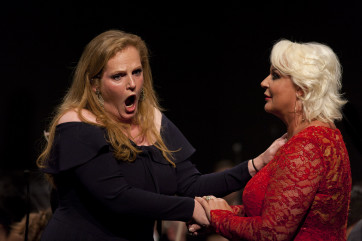
Eva-Maria Westbroek (Sieglinde), Iréne Theorin (Brünnhilde)
© Aline Paley
But it was only when Eva-Maria Westbroek (Sieglinde) started singing, with an immense voice and arms wide open, “Rette mich, Kühne ! Rettet mein Kind!”—making the aria sound like a love call emerging from deep down in her soul—that the artistic miracle which brings an interpretation to an emotional peak occurred. From that very moment, the Dutch soprano managed to take Wagner, the whole Ring, the orchestra, everything, to a place beyond music. She made every instant beautiful, enveloped the whole space with her powerful voice, and conveyed the image of a broken woman, a mother devastated by pain, with harrowing accents in an extraordinary performance.
From that moment, the whole Verbier stage changed, beginning with Gergiev, who transcended the orchestra's limitations and drove it to a paroxysm of sound. In an instant, Wagner's modernist accents are suddenly shattered, giving way to the most beautifully Romantic sonorities, with a superbly played persistent bass clarinet, deep woodwinds, resounding brass, and strings throbbing with palpably contained emotion. The audience could now hear Gergiev at his best. We all soared, we all flew, we were all in communion with the stage.
And if all that were not enough, bass-baritone Bryn Terfel (Wotan) was in vocal form such as we have not heard from him in a long time. His fury, at times tainted with a rough, raspy tone, was intensely theatrical, without ever diminishing the quality of his diction. His discourse was sensitive and his portrayal of the character, which he seems to have mastered entirely, was unquestionably credible. In his long dialogue with Theorin as Brünnhilde—who was also suddenly transformed, her interpretation now hypersensitive—the Welsh baritone went from anger full of cruelty to compassion and fatherly love with an expressive cantabile of great beauty. With a voice suddenly soft and lyrical, he sang in an almost imperceptible whisper “Leb wohl, du kühnes, herrliches Kind,” followed by a sublime “Der Augen leuchtendes Paar.”
After having shown again the power of his authority is his invocation of love, Terfel yielded to Valery Gergiev, who was now more inspired than ever, and whose interpretation moved us to tears up until the last notes of this third act of Die Walküre, which will certainly remain for a long time in the hearts of everyone in the audience—an audience that had the privilege to see and hear one of the most moving concerts of the Verbier Festival, and that waited a long time, in respectful silence, for the right moment to triumphantly acclaim the protagonists of this admirable performance.
Plus de détails
Verbier. Salle des Combins. 25-VII-2013. Giuseppe Verdi (1813-1901) : Otello, acte I. Richard Wagner (1813-1883) : Die Walküre, acte III. Avec Aleksandrs Antonenko (Otello) ; Anna Netrebko (Desdemona) ; Alexey Markov (Iago) ; Francesco Demuro (Cassio) ; Anthony Gregory (Roderigo) ; Maurizio Leoni (Montano). Bryn Terfel (Wotan) ; Eva-Maria Westbroek (Sieglinde) ; Iréne Theorin (Brünnhilde) ; Zhanna Dombrovkaia (Ortlinde) ; Natalia Evstafieva (Waltraute) ; Elena Vitman (Schwertleite) ; Tatiana Kravtsova (Helmwige) ; Ekaterina Sergeeva (Siegrune) ; Anna Kiknadze (Grimgerde) ; Yulia Matochkina (Rossweisse). Chœur The Collegiate Chorale (Chef de chœur : James Bagwell). Verbier Festival Orchestra. Direction musicale : Valery Gergiev

